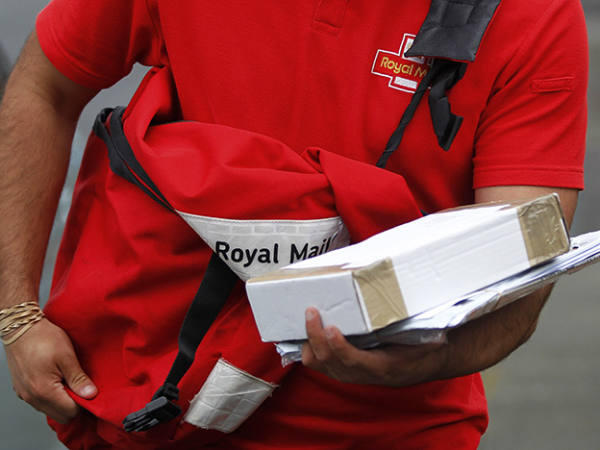The importance of ‘getting one’s affairs in order’ will be best appreciated by anyone who has ever had to administer the estate of a deceased friend or loved one. It’s obviously a dreaded task conducted at the worst possible of times, but there are a number of practical measures that can make the whole process more bearable – and it’s not as though we can avoid the issue. We contacted Stuart Simpson, head of bereavement services at Equiniti (EQN), who provided some practical advice on how you can minimise the red tape and associated disruption caused by the estate process.
IC: What are the main issues that shareholders need to consider when preparing a will?
Stuart Simon: Firstly, Equiniti Bereavement Services would recommend that it is important to prepare a will and to always let your executors know where the will is held. If you die without a will (intestate), there are certain rules that dictate how the money, property or possessions should be allocated and these may mean that your estate is not distributed in the way that you would have wished.
Once you have written your will, you should review it regularly to make sure it continues to reflect your wishes, and where this is not the case arrange for it to be updated. We would recommend that you review your will at least every five years and after any major life change, such as getting separated, married or divorced, having a child or moving house.
When preparing your will, you should consider:
■ How much money and what property and possessions you have, for example, shares, property, savings, occupational and personal pensions, insurance policies, bank and building society accounts.
■ Who you want to benefit from your will. You should make a list of all the people to whom you wish to leave money or possessions. These people are known as beneficiaries. It is important to give consideration to the possibility that a beneficiary may die before you and how you would wish your estate to be distributed if this were to be the case. You also need to consider whether you wish to leave any money to charity.
■ Who should look after any children under 18.
■ Who the executors of the will will be. The executors are the people who will manage the estate and carry out your wishes as set out in the will.
In order for a will to be valid, it must be:
■ Made by a person who is 18 years old or over.
■ Made voluntarily and without pressure from any other person.
■ Made by a person who is of sound mind.
■ In writing.
■ Signed by the person making the will in the presence of two witnesses.
■ Signed by the two witnesses, in the presence of the person making the will, after it has been signed initially by the person. A witness or the married partner of a witness cannot benefit from a will. If a witness is a beneficiary (or the married partner or civil partner of a beneficiary), the will is still valid, but the beneficiary will be unable to inherit under the will.
Although it will be legally valid even if it is not dated, it is advisable to ensure that the will also includes the date on which it is signed.
If a family member dies and you are unaware if they had a will, or if it is the latest version, you can check by contacting the National Will Register:
https://www.nationalwillregister.co.uk
IC: How is notification of a shareholder's death applied to a shareholding?
SS: Equiniti is able to register the notification of death on a shareholding even if the notification is not accompanied by all the information and documentation that is formally required to administer the estate and the notification can be given by telephone, email or in writing. Due to the large number of death notifications received by Equiniti each year, we have created a dedicated bereavement helpline in our contact centre to assist the families of deceased shareholders at this sensitive time. The agents who man the line, having volunteered for the role, and many of whom have personally suffered a bereavement of a close family member, have all received specially designed training to allow them to empathetically assist those left behind by the deceased, making the process as easy as possible at a difficult time.
When we’re notified of the death of a shareholder, a temporary restriction is placed on the account, which stops documents (such as dividends or share certificates) being sent to the shareholder and stops any transactions from taking place until the death has been correctly registered. The death can be registered by either using the small estates service or by providing the Grant of Representation.
IC: What if an investor dies intestate - what’s the role of a share registrar under those circumstances?
SS: When an investor dies intestate, without leaving a valid will, Equiniti will act as administrator and apportion the estate in accordance with the instructions of the administrator and the rules of intestacy. For assistance with administering an estate, the administrator should seek professional advice.
IC: Could you explain what a Grant of Representation is?
SS: The Grant of Representation is a court-issued document, which proves the executors’ entitlement to deal with the deceased’s estate. This could be one of the following:
■ Grant of Probate.
■ Letters of Administration; or Certificate of Confirmation (Scotland).
■ A Grant of Representation issued by a Commonwealth country/territory will also be accepted as long as it has been resealed in England by the High Court of Justice.
Where an estate is being managed by an executor who has obtained a UK Grant of Representation, the original document, or a sealed office copy, will need to be supplied (we are not able to accept certified copies). Once received, all originals are scanned and recorded electronically on our system for future reference, with the original returned to the executors.
IC: Could you give us a rundown on Equiniti’s share valuation service and small estates service?
SS: Our share valuation service allows executors to obtain an indicative value of a shareholding as at a specific date in the past. This can be useful when trying to ascertain the valuation of an estate of a deceased shareholder for inheritance tax purposes.
Equiniti’s small estates service is a special concession offered to the next of kin of the deceased shareholder or executor(s) named in the will. It can be used by executors where the value of the holding(s) held in each company by the deceased (shares and/or outstanding payments) is less than £10,000, as at the date of death, and when no inheritance tax is payable on the deceased’s UK estate. By completing the small estates process, the executor will not be required to obtain a Grant of Probate.
The Small Estates Declaration & Indemnity form can be used by the deceased’s blood relative, next of kin or the executor(s) who were named in the Last Will & Testament.
IC: Will registrars normally outline any tax implications linked to probate issues?
SS: No, as administrators, registrars are not qualified tax advisers and are not in a position to give tax advice. But every estate requires an inheritance tax and income tax form to be submitted to HMRC, regardless of whether the estate is taxable or non-taxable. For more information on tax implications, the executors should seek the advice of an authorised financial adviser, accountant, solicitor or professional estate administrator. Due to the large number of death notifications received by Equiniti each year, we have sought to support our shareholders. In addition to having our bereavement helpline, we provide support for the executors of an estate through our partnership with Kings Court Trust, a regulated company that has been providing estate administration services since 2002.
IC: If the deceased’s family or spouse is convinced that he or she held shares in a particular listed company, but there are no share certificates or paper trail, what are the first steps they should take?
SS:
Where an individual believes that a deceased member of their family might have held shares or have unclaimed funds, they should write to Equiniti and supply as much information as possible to help locate the asset. This could include details of the company/companies that they believe they held shares in, their current and any previous addresses or any previous names. You can find more information on how to do this at: www.shareview.co.uk/4/Info/Portfolio/Default/en/Home/Shareholders/Pages/ShareholdingEnquiry.aspx
We would then do a search of our databases and confirm if any holdings exist and the next steps to be reunified with those assets. Where the individual has uncashed dividends, Equiniti will reissue the payment to the shareholder by cheque if requested. But the most secure way for shareholders to receive their payment, without the risk of cheques being lost or remaining uncashed, is to set up a mandate instruction, which means future payments will be made by BACS to the shareholder’s bank account on the dividend payment date. You can find details of how to do this at: www.shareview.co.uk/4/Info/Portfolio/Default/en/Home/Shareholders/Pages/DivReissues.aspx
IC: What are some of the issues linked to share transfers - what are the costs typically?
SS: Where a grant of probate is held, once the death has been registered, the appointed legal representative(s) will be able to deal with the shares as appropriate and transfer the shares to the new holder by completing a stock transfer form.
With Small Estates, once a completed Small Estates Declaration and Indemnity form is received, the shares will automatically be transferred into the name(s) of the person(s) detailed on the form, who will be able to transfer them on using a stock transfer form.
IC: We would like to get some practical information for our readers when they are faced with lost and damaged share certificates. What is a form of indemnity? What about a shareholder change of name or address etc?
SS: If a share certificate is defaced, worn out, lost or destroyed, it may be renewed if evidence of the damaged certificate is provided, or an indemnity and payment of the appropriate fee to cover the cost of the replacement. Where the damaged share certificate is available and provided to Equiniti, a new certificate will be issued free of charge.
Where evidence of the damaged share certificate is not provided, an indemnity against the certificate being used at a future point is required. If we were to issue replacement certificates into the public domain without gaining such indemnity, Equiniti (as the agent) and our issuers could become liable for substantial costs, which could even be in excess of the original share certificate value. The indemnity also covers the shareholder against the full cost of any fraudulent activity in the future.
Although systems are in place to protect the shareholder and the issuer against misuse of certificates that have been reported lost, stolen or destroyed, the risk of misuse still exists. An example of such misuse could be that the share certificate may be used as collateral against lending without the knowledge of the registrar or the issuer, and if such a transaction were to occur, the lender may seek recovery from the issuing company, if it were ascertained that the share certificate had been used fraudulently. Naturally, the value of the insurance required against misuse of the lost or damaged certificate relates to the level of insurance provided and the value of the countersignature of the indemnity.
For all cases, the process for lost, stolen, damaged or defaced certificates requires the completion of a ‘joint and several indemnity’. In this, the shareholder(s) and an insurer undertake to indemnify Equiniti and its clients against any potential claims, demands, liabilities, costs, charges and expenses – which may be brought against or incurred by either of us, arising out of or in connection with the original certificate still in existence, or the issue of a duplicate certificate, or the registration of a sale or transfer. In order to provide the countersignature, an insurer will require a fee commensurate with the value of the certificate lost/stolen and the risk they are undertaking. This fee may vary depending on the insurer. Equiniti has a relationship in place with its insurers to try to make the process as smooth and easy as possible for shareholders to obtain the insurance/countersignature they need. However, shareholders are entitled to use any insurer/bank that will supply the countersignature.
We have negotiated an agreement for the countersignature of indemnities with our insurer to cover the most common level of certificates that are lost – £50 to £100,000 (for certificates under £50 there is no charge).
You can find more information on cover at: www.shareview.co.uk/4/Info/Portfolio/Default/en/Home/Shareholders/Pages/LostCerts.aspx
We also work with our issuers and through our Shareview website and retail customer broadcasts to inform and educate shareholders about the alternatives to holding shares in certificated form, whether through the investment vehicles offered by Equiniti, corporate sponsored nominees or market alternatives. Dematerialised holding of shares protects against loss of certificates but also has other security benefits and frequently offers quicker transaction times for purchases and sales of investments.








